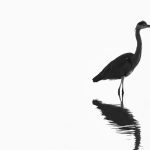House shivers when Witch Malina kick-slams the scullery door behind her. In her cloak, she hauls a copious harvest of swamp nightshade, snakeroot, and wolfbane, which she dumps into the boiling cauldron. The stock for Hansel-and-Gretel stew. By the way, I’m Gretel.
One whiff of that broth and every cup hooked to the wall wobbles. A milk jug pitches itself to the stone hearth and shatters. Malina cackles at the fright and winks at us, imprisoned in a cage that dangles from the ceiling, more or less at eye level.
How I wish House had been built with inside arms to strangle witches!
After months of neglect, his windows are a riot of noxious creeper; his foundations nibbled by Malina’s familiars, an army of carpenter ants; and his thatch colonized by black-widows. He wasn’t always shabby. He used to be the show-house of the mountain, but that was before Malina bewitched the land into fetid swamp and scooped out our parents’ heads for a brain tartare festival with her coven.
Despite the nauseating smell, enough to make a poker gag and choke any ordinary witch, Malina conference-calls her coven to announce a midnight feast and begs them to fix a side of skunk-cabbage with toad. House exhales down his chimney. Soot spews, and flames flare around the cauldron, but Malina keeps combustibles well away from the hearth. The arson plan is hardly brilliant: Hansel and I would die of smoke inhalation or roast in flames run amok.
House squints through the creeper over the west window to see the waning sun. His shudders cause the gables to creak. We moan in our swaying cage. Our gaunt faces are pale, our eyes squelchy as puddles of mud. If only House could move out of this miasma of stagnant swamp and moldering vegetation. If only he’d paid more attention to mobility issues when Dad built him, log by log, from the walking-pine forest now immobilized by strangler vines.
It’s no use his lamenting. He has to save us, as well as our inheritance—all Dad’s hand-made furniture, Mom’s hand-thrown clayware, and the precious collectibles we picked up at foreclosure auctions. House has no allies: the dishwasher lapsed into a depression; the blender imploded; and the freezer went cannibal when it was piled high with Mom-and-Dad ribs and chops. Luckily, Malina’s cat-napping in her witch-elm rocker, sprinkled with soot, and still sucking on a hand-thrown clay pipe.
We hold our breaths while House inhales a houseful of air and leans ever so slightly left. He wiggles his massive foundation beam to the right. To our gratification, it rises up, anxious to be on the move. He’s tilted. We slide across our cage and bump heads. House stealthily tugs at his left side. The beam shakes disconsolately, gnawed and compromised as it is by the ants.
House bucks it up with a lecture about willpower.
It strains. There’s groaning, cracking, all sorts of disastrous sounds, but it finally lifts to rectify the tilt. House is wrenched free on his two walking beams. He inhales loudly, swings a beam forward and shifts his weight with infinite care. He swings forth the riddled beam and we all wince for its pain. A broken eyebrow window showers us with glass.
Weapons at least, if House fails us.
He leaves a trail of wood chips and distraught ants in his wake, but step by terrible step he ascends the mountain path. He’s overheated with the effort even as cold rain shafts down to scour his thatch and windows and flood his root-cellar. It’s a strain to move the extra weight until he opens his back door to release the flood that carries Malina and her bubbling cauldron down, down into the murky depths of the swamp. We clap in our cage.
Lighter now, he takes another lengthy step. His objective is the mountain peak where we used to ski when it was too cold to wield a saw or slap clay about and the internet was down.
Up there, he’ll find people to release us and provide counseling—no Stockholm syndrome here.
And, with any luck, there’ll be a carpenter willing to replace his damaged foundation beam so we can live happily ever after up here over the snow line, where witches freeze hard as old popsicles.
…
Biography
Cecily Winter lives in New England with her husband, a houseful of pets, and a few acres of teeming wildlife. She writes novels mostly, but has had several short stories published in commercial magazines. Website: cecilywinter.com | Twitter: @winter_cecily.
Image: unsplash.com





